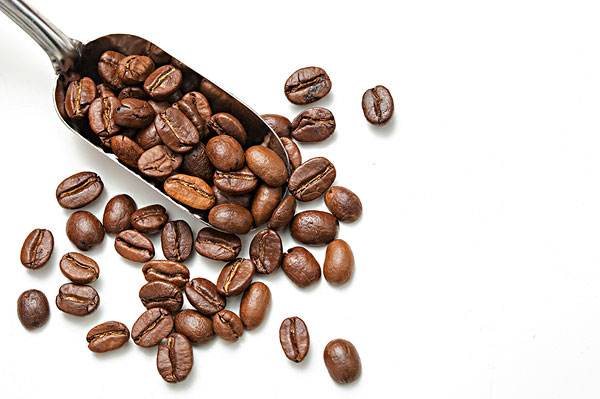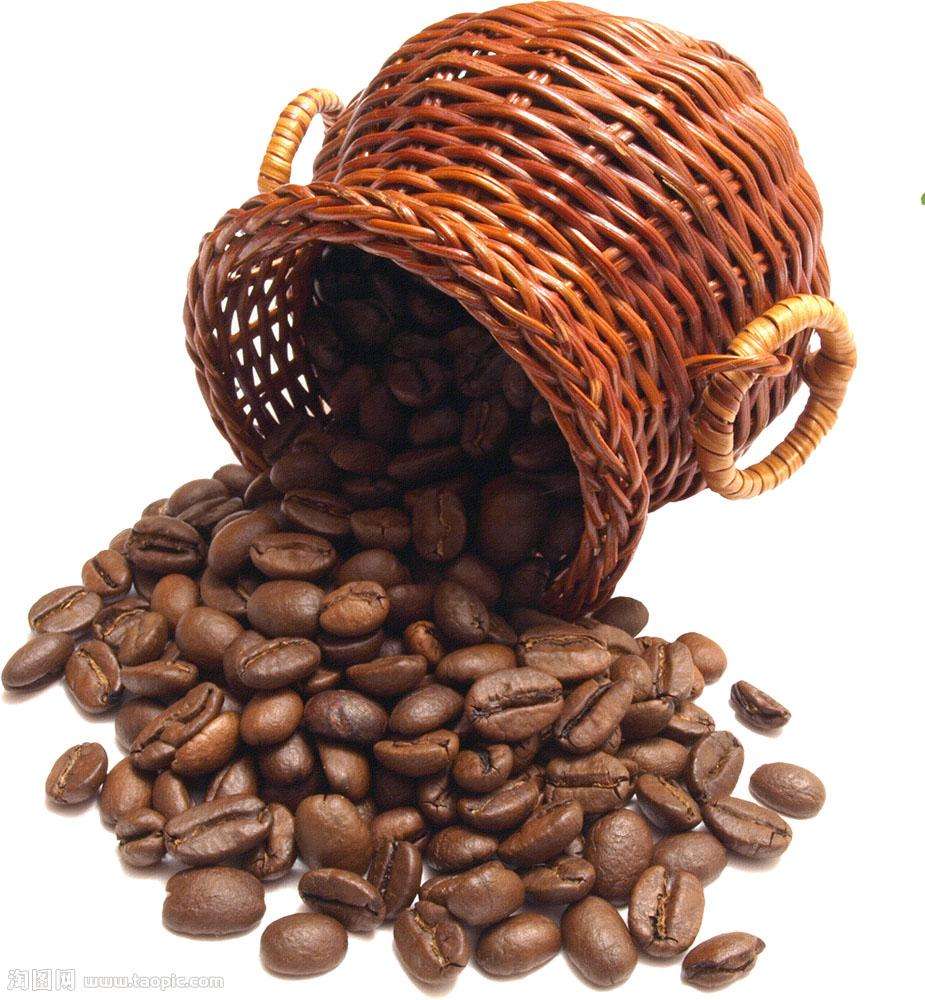Yunnan coffee plantation, Yunnan coffee bean growing area
Follow the caf é (Wechat official account vdailycom) and found that Beautiful Cafe opened a small shop of its own.
Due to the unique geographical environment and climatic conditions, Yunnan coffee has formed a unique flavor of strong but not bitter, fragrant but not strong, with a little fruit flavor. World-class coffee experts evaluate it as the best coffee in the world, and its cultivation techniques. The yield per unit area is also world-class.
Coffee is rich in protein, fat, sucrose, starch, caffeine and other substances. after being made into a beverage, coffee is rich in aroma, delicious taste and rich nutrition, so it has become the world's three major beverages composed of tea and cocoa, and ranks first in the list. Yunnan coffee is a variant of Arabian original species, which has been cultivated for more than one hundred years after long-term cultivation and domestication.

Coffee bean growing area in Yunnan
Coffee is the second largest trading commodity in the world after crude oil, and its production capacity is mainly distributed in the tropics and subtropics between the Tropic of Cancer, such as Jamaica in the Caribbean, Ethiopia in Africa, Vietnam in Asia and so on.
In China, the only areas suitable for growing coffee are Yunnan and Hainan. Because coffee is quiet and Hainan is often windy, more than 98% of China's coffee production capacity is concentrated in Yunnan. As an "imported product", the planting history of Yunka began in 1892. In Binchuan County, Dali, there are still more than 30 coffee trees planted by French missionaries.
Since the 1950s, in order to supply the coffee demand of the Soviet Union, Baoshan City, Yunnan Province began to grow small-grain coffee on a large scale. Because of its superior location and climate, the "Lujiang No.1" coffee has won many awards in the global competition, which has established the international status of Yunka. Later, due to the deterioration of Sino-Soviet relations, Yunka's history was torn apart. Until 1988, in order to disperse the risk of excessive concentration of coffee production in South America (output accounted for nearly half of the world), the multinational Nestle Coffee Company (hereinafter referred to as Nestle) found Pu'er City in the south of Baoshan City as a new world of coffee. Re-break the ground to cultivate China's coffee industry. As a forerunner, Nestl é not only restarted the history of cloud coffee industrialization, but also became an unavoidable role in all kinds of entanglements.
Subject to the low awareness of farmers, the small scale of the market and other factors, in the period of time after the resumption of planting, the scale of Yunka did not grow rapidly.
In order to break the development deadlock, Nestl é has launched a coffee technical assistance service project in Yunnan Province since 1992 and signed a 14-year agreement with the Pu'er municipal government: Nestl é promised to buy coffee beans at the price of the spot market in the United States. as a guarantee of farmers' interests, there is no cap, and the lowest purchase price is set.
Among the more than 80 acquisition sites around the world, Yunnan's acquisition system is particularly special. In addition, it has turned the large coffee suppliers and state-owned companies that used to supply Nestl é into individual farmers. To achieve this transformation, Nestl é moved its acquisition office, which was originally set up in Kunming, to Pu'er, a production area.
The practice of "knowing China better" has helped Nestl é avoid "disobedience between soil and water". During the 2011-2012 production and marketing season, Nestl é bought more than 8000 tons of coffee beans in Yunnan, 99 per cent of which were produced by individual farmers.
With the deepening of industrialization, more and more local coffee people begin to reflect: if they continue to develop according to the single planting variety bred by Nestle and the purchase price completely follow the market, Yunnan will not be able to get rid of the fate of "coffee raw material base".
Yunka has unique capital: it is mainly planted in the Nu River and Lancang River Valley, with a large temperature difference between day and night and unique water and fertilizer conditions. Such growing conditions are even better than those in the Blue Mountains region of Jamaica, where top coffee is produced. So a decade ago, Nestl é's top brand, Nespresso, began using Pu'er coffee beans as raw materials.
Compared with Brazil, a coffee giant that uses large-scale mechanical cultivation and dry processing, the quality of small grains of coffee processed by washing in Yunnan is more similar to Colombian coffee. Colombia is the world's largest producer of premium coffee, producing 660000 tons in 2012. All coffee varieties are selected by themselves, produced in the manor mode and sold by the coffee growers' association of the country.
When coffee produced in Colombia is sold at a price of about 25 yuan / kg, Yunka, which is of similar quality, can only be sold to buyers for about 15 yuan / kg. In the Yunka acquisition system, Nestl é and Starbucks, which entered the acquisition system in 2011, will acquire the best quality coffee beans at the highest purchase price. But this price still fluctuates on the basis of the price of the New York coffee futures market. Relevant sources pointed out that the quality of Yunka is higher than that of coffee delivered on the New York Coffee Futures Exchange, but Yunka did not get a matching price due to competition from Brazil and other countries.
Awkwardly, after entering the secondary market, the coffee beans left over by Nestl é and Starbucks were bought by local companies at a low price, and then processed and flowed into the international market at a low price, thus forming Yunka's image of "low quality and low price".
"the good beans were taken away, but the image of Yunka was shaped and formed by bad beans." Liu Minghui, chairman of Yunnan Aiyi Coffee, told Caijing.
During the 2011-2012 harvest season, Yunka suffered from this "raw material supply" model, which accounted for 90% of the total output at its peak. Because prices have fallen too fast, the average income of Li Xiaozhi, a farmer in Baoshan, has reached about 6000 yuan in previous years, which has become less than 3000 yuan. A year later, the situation remained the same: in October 2012, at the beginning of the new purchase period, the purchase price for coffee offered by Nestl é was about 17 yuan / kg, a five-year low.
"No deep processing, no brand, no scale, no market, become the four major bottlenecks hindering the development of Yunka." Dong Zhihua, vice president of the Yunnan Coffee Industry Association, analyzed that "the development of deep processing lags behind, and the advantage of industrial resources has not been fully transformed into economic advantage, which greatly reduces the ability to resist risks and restricts the development of the industry."
Production capacity "competition"
To solve the above "four difficult problems" and achieve further development is a consensus gradually formed in the Yunka industry in recent years. Before that, the Yunka industry was mostly "spontaneous": the scale of the industry was relatively small, and most of the places were treated as sideline status, with no well-known brands and no industry associations.
Driven by multiple factors, this situation began to change in 2008: that year, the Pu'er tea speculation bubble finally burst. In order to reduce the losses of tea farmers, the Pu'er municipal government began to encourage tea farmers to switch to coffee. Due to the superior geographical conditions of Pu'er City, coupled with the foundation laid by Nestl é, the planting area of coffee has expanded rapidly.
In 2010, due to the imbalance between supply and demand in the global coffee market, Yunnan small-grain coffee sold at an annual high price of more than 40 yuan per kilogram, with a profit margin of more than 200%. Such a booming market began to promote the rapid increase of Yunka planting area as a whole.
"the market is too attractive. Not only the farmers themselves have greatly expanded their species, but even the real estate owners who are sitting on exorbitant profits have abandoned the real estate and come to grow coffee. " Jin Jihui, general manager of Yunnan 1% Coffee, described the situation at that time. Over the past few years, Yunka has become the second largest agricultural product in the province after tobacco, with an output value of nearly 10 billion yuan.
Farmers and local governments are beginning to find that growing coffee is much more cost-effective than growing tea: in 2012, Yunnan planted 5.8 million mu of tea and produced only 84000 tons. In the same period, the planting area of coffee is 430000 mu, and the output has reached 70, 000 tons.
The gap in land use efficiency "one for ten" has boosted the enthusiasm of all parties to grow coffee.
"if there is one industry in Yunnan that can compete with tobacco in 20 years, it is coffee. If there is an industry that can surpass tobacco in 30 years, it is still coffee. " Xiong Xiangjin, president of Yunnan Coffee Industry Association, made this statement, which is the best expression of the optimistic attitude of the industry.
With the help of "Dongfeng", Yunnan Coffee Industry Association and Yunnan Provincial Development and Reform Commission and other departments jointly formulated and promulgated the Yunnan Coffee Industry Development Plan (2010-2020) for the first time (hereinafter referred to as "the Plan"). Compared with the actual development, the goal set by this "plan" is too cautious. According to the Plan, the coffee planting area of the province will grow to 1 million mu by 2015 and 1.5 million mu by 2020.
Important Notice :
前街咖啡 FrontStreet Coffee has moved to new addredd:
FrontStreet Coffee Address: 315,Donghua East Road,GuangZhou
Tel:020 38364473
- Prev

Yunnan coffee and American coffee are introduced. Is Yunnan coffee good?
Following Cafe Review (Wechat official account vdailycom) found that Yunnan Coffee Iron pickup Coffee and Bobang, two classic high-quality coffee varieties, are the main coffee varieties cultivated in Yunnan. In 1991, Katim varieties were introduced from Kenya, which are more resistant to virus and higher yield. At present, Katim is the most widely planted in Yunnan.
- Next

The brand introduction of Vietnamese coffee and the culture of Vietnamese coffee
Follow the caf é (Wechat official account vdailycom) and found that the representative products of Vietnamese coffee are TRUNG NGUYEN Coffee and HIGHLANDS Coffee. If the Central Plains Coffee has a strong and strong taste, then the Highland Coffee is elegant and warm; if the Central Plains Coffee focuses on product research and development, then Highland Coffee emphasizes the storefront.
Related
- Detailed explanation of Jadeite planting Land in Panamanian Jadeite Manor introduction to the grading system of Jadeite competitive bidding, Red bid, Green bid and Rose Summer
- Story of Coffee planting in Brenka region of Costa Rica Stonehenge Manor anaerobic heavy honey treatment of flavor mouth
- What's on the barrel of Blue Mountain Coffee beans?
- Can American coffee also pull flowers? How to use hot American style to pull out a good-looking pattern?
- Can you make a cold extract with coffee beans? What is the right proportion for cold-extracted coffee formula?
- Indonesian PWN Gold Mandrine Coffee Origin Features Flavor How to Chong? Mandolin coffee is American.
- A brief introduction to the flavor characteristics of Brazilian yellow bourbon coffee beans
- What is the effect of different water quality on the flavor of cold-extracted coffee? What kind of water is best for brewing coffee?
- Why do you think of Rose Summer whenever you mention Panamanian coffee?
- Introduction to the characteristics of authentic blue mountain coffee bean producing areas? What is the CIB Coffee Authority in Jamaica?

